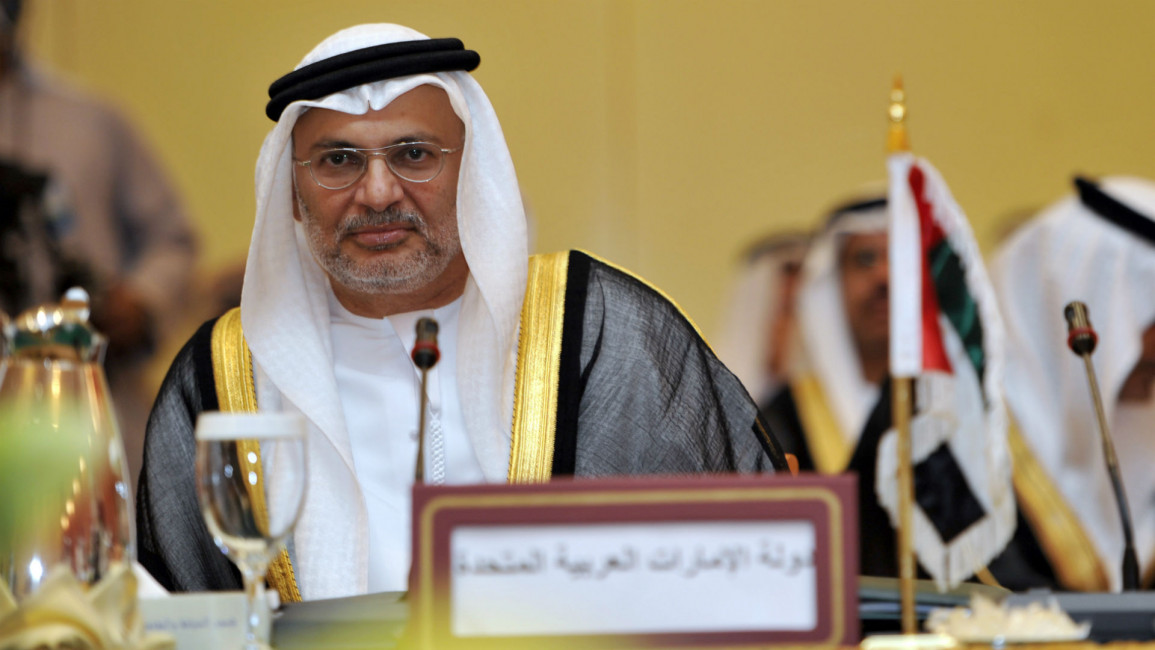
'An oil-drenched slap': A Pakistan-Gulf war of words
"That's 180 million pairs of Pakistani hands slapping this Arab cheek till it turns crimson with fury, and shame. Go threaten someone else."
Strong words – and directed by a Pakistani journalist, Fahd Husain, towards the UAE's foreign minister Anwar Gargash, who reacted to the Pakistani parliament's decision on 10 April to not participate in the Saudi-led coalition airstrikes on Yemen by tweeting his disapproval.
"Positions that are contradictory in such fateful issues have
| We should make it a point to show the Pakistani people that our love for them isn't a case of tit-for-tat. - Faisal Abbas, al-Arabiya |
a high cost," Gargash threatened, also tweeting that "moments like these distinguish real allies from those of media statements".
Husain's column, published by the Express Tribune in Pakistan on 12 April, reacted furiously and disparagingly.
"So here's the deal: for once Pakistan does not dance to the unmelodious Arab tune, and the oil-spoilt sheikhs blow a top. Well, good for us. The sheikhs can choke on their fury for all we care."
It didn't end there.
Husain went on to refer to Gulf money as "oil-drenched dollars" and Gulf rulers as "piddling sheikhs".
If you're looking for the rest of the article, it will be hard to find. The Express Tribune have taken it down, apparently in response to a request from the Pakistani government.
While the Tribune may have acquiesced to the request, they themselves backed the Pakistani parliament's decision, while managing to refrain from resorting to calling Gargash a "non-entity" as their columnist did.
"The Pakistani parliament has very wisely decided to pass a resolution that calls on the government not to accede to Saudi Arabia's request," the editorial, published on the same day as Husain's piece, said.
Other Pakistani papers agreed.
On 10 April Farooq Hamid Khan, writing in the Nation, called on his country to not "repeat the past blunders of fighting others' wars and getting ruined in the process" saying that Pakistan had no need to fight "a smaller, weaker and impoverished Muslim country with which Pakistan has no enmity".
Pakistan Today's editorial on 12 April responded to Gargash by pointing out that this was a decision made by a democratic body.
"The UAE Minister needs to be reminded that there is nothing vague or contradictory in Pakistan's stand. The Parliament issued a clear and unambiguous statement after a five-day long debate."
Across the Gulf, there was a strong response.
Al-Arabiya English's editor-in-chief, Faisal Abbas, regarded Pakistani prime minister Nawaz Sharif's comments post-parliamentary vote, where he said that his country would not "abandon friends and strategic partners", as "meaningless".
In an article published on 14 April titled 'Et tu, Pakistan', Abbas made his point.
"Such statements are similar to the meaningless ones repeated by other 'allies' who huffed and puffed pledging over the past few weeks not to allow any harm to fall upon Saudi Arabia," he said.
Abbas projected a slightly conciliatory tone though, arguing that what he perceived as Pakistan's betrayal should not mean that the Gulf should abandon its strategic partner.
"We should make it a point to show the Pakistani people that our love for them isn't – or ever was – a case of tit-for-tat."
In the UAE's The National, whose editorial also reflected on betrayed friendship - "It's at times like these that one appreciates the support of friends" - Ayesha Almazroui asked why Pakistan was not helping the Gulf.
"The UAE has every right to be upset and disappointed over Pakistan's contradictory position regarding the conflict in Yemen," Almazroui said.
She went on to refer to the UAE's development aid to Pakistan over the years. But perhaps that issue of Gulf exports is where the differing reactions in this spat across Pakistani and Gulf media comes from.
Harris Bin Munawar, writing in The Nation on 15 April, has in mind a different export that Almazroui.
"For decades now, Saudi Arabia has sent in people to Pakistan and Afghanistan who are ready to fight to protect Islam," he said.
"It is time to give back to our allies. I propose that Pakistan should send the local Taliban, as well as other militant and religious groups who are coming out in support of Riyadh, to go and defend Saudi Arabia."



